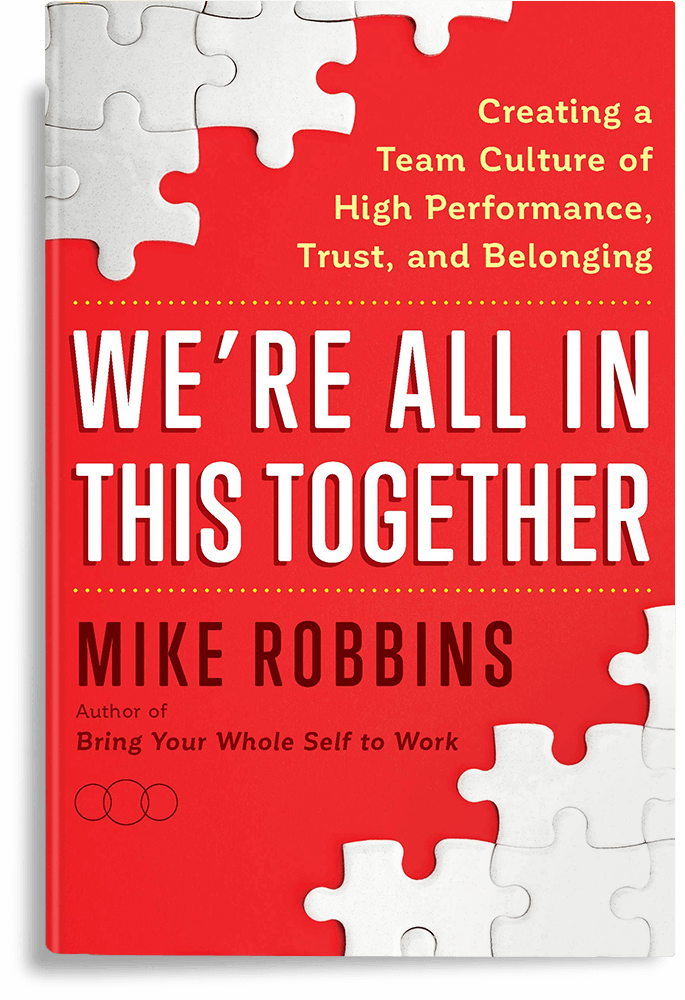Blog
Are you struggling to enhance your career?
We’ve all been there. You might be stuck in a role that hasn’t led to growth in years, or perhaps you no longer feel any passion in your current job. Maybe your company doesn’t prioritize growth, or maybe you just don’t feel motivated at all. Whatever your reasoning is – you’re not alone.
In today’s digital age and world of instant feedback, social media chatter, and computer-generated graphics, we’ve become more critical, negative, and even spoiled, to our own detriment. More of us are finding it harder to find fulfillment in our lives and careers.
If you’re feeling stuck in the day-to-day bore of your job, there are some things you can do to shift your mindset and thus improve the quality of both your career and your life.
4 Ways to Enhance Your Career
1. Be easy to impress
Be in awe of people, talent, nature, art, technology, work, and the world around you. Embrace a sense of wonderment, like a child does. There are so many extraordinary people and things around us all the time, we just don’t often stop to appreciate them and allow ourselves to be impressed, especially at work and if we’re feeling frustrated with our current job.
2. Be hard to offend
In other words, don’t take things so personally and allow yourself to get offended so easily. Imagine if you woke up tomorrow morning and said to yourself, “It’s going to take something enormous to offend me today.” That would probably be a good mindset to take to work and out into the world, don’t you think?
Once we’ve lived a bit, gained some professional experience, or think of ourselves as somewhat sophisticated, we often get jaded. It takes something pretty remarkable to impress us. And, sadly, we get offended very easily and blame others for our stress, frustration, and disappointment.
3. Make a commitment to yourself
Make a commitment to yourself to be easy to impress and hard to offend…and see what happens to your career and your life.
Making a commitment to yourself is a crucial part of both personal and professional growth and development. It fosters self-discipline and empowers you to pursue your goals.
Making a commitment to yourself builds a strong foundation for self-improvement, allowing you to take the right steps to prioritize your well-being and enhance your career.
Remember: committing to yourself also means being able to realize and fully acknowledge when or if a certain career isn’t for you, or when a certain part of your role or career has run its course.
If you’re starting to realize that you’re no longer bringing your whole self to work, it may be time to take a step back and figure out what caused the change.
4. Have a growth mindset
Operating with a growth mindset means committing yourself to constant learning and embracing challenges as opportunities for development. Actively seek out feedback and use it to motivate you to improve in your career.
When you embrace this type of proactive growth, it helps you feel more comfortable taking risks and seeking out new responsibilities that can show your skills and potential for advancement.
Take the Right Steps to Enhance Your Career Today
As I travel around the country and the world working with people, leaders, teams, and organizations of all kinds, it’s clear to me how important having this type of approach can be. Unfortunately, we often justify our lack of being impressed and how easily we get offended, instead of realizing all the ways these things hold us back.
Moving forward successfully in our careers has a lot to do with how we see ourselves, others, and the world around us. While it may be easy to get caught up in the drama, stress, and negativity of others, our work environment, or the world we live in, ultimately, we have a choice.
If we choose to be easily impressed and hard to offend, to make a commitment to ourselves, and to operate with a growth mindset, these things can have a dramatic and positive impact on our careers and our lives.
Liked this article? Here are three more…
The Challenge and Importance of Inclusion at Work
The Important Benefits of Being Grateful at Work
Have the Courage to Be Vulnerable
This article was originally published in 2019 and updated for 2023.
Issues of gender, race, sexual orientation, nationality, age, disability, and religion are essential for us to address in today’s world – in society and at work.
However, these important issues can be hard to work through authentically, since they can bring up thoughts, feelings, and experiences that are both deeply personal and difficult to understand from our various perspectives.
They also touch on issues of privilege, oppression, bias (both conscious and unconscious), and opportunity. These things can elicit strong emotions and reactions for many of us, understandably.
For these and other reasons, it’s becoming all the more important to focus on inclusion at work and address all the related challenges that can come up in this regard within our teams and organizations.
The Importance of Promoting Inclusion at Work
For many people who identify as belonging to one or more non-dominant groups, their identity can raise issues of challenge, pride, struggle, and more, especially at work.
Promoting inclusion in our teams and companies involves each of us making a conscious effort to consider, discuss, and remain mindful of these dynamics and concerns. It’s also about fostering a setting that prioritizes openness, empathy, support, and safety, even when it’s difficult or uncomfortable.
“Covering” Your Identity
The term covering was coined by sociologist Erving Goffman to describe how even individuals with known stigmatized identities make “a great effort to keep their stigma from looming large.” Kenji Yoshino, a constitutional law professor at NYU, further developed this idea and came up with four different categories in which we “cover”: (1) Appearance, (2) Affiliation, (3) Advocacy, and (4) Association.
In essence, we often do what we can to cover aspects of ourselves that we believe might put us out of the “mainstream” of our environment. Yoshino partnered with Christie Smith, Managing Principal of the Deloitte University Leadership Center for Inclusion, to measure the prevalence of covering at work. They distributed a survey to employees in organizations across 10 different industries. The 3,129 respondents included a mix of ages, genders, races/ethnicities, and orientations. They also came from different levels of seniority within their organizations.
Sixty-one percent of respondents reported covering at least one of these four categories at work. According to the study, 83 percent of LGBTQ individuals, 79 percent of blacks, 67 percent of women of color, 66 percent of women, and 63 percent of Hispanics cover. While the researchers found that covering occurred more frequently within groups that have been historically under-represented, they also found that 45 percent of heterosexual white men reported covering as well.
How to Create Inclusion at Work
Issues of diversity and inclusion impact all of us. And while they clearly play a significant role in the lives and careers of women and members of every minority group, it’s important that we all be willing to look at and talk about these issues and do what we can to create an environment that is as inclusive as possible. For us to do this, it takes authenticity, emotional intelligence, and courage – both individually and collectively.
We’re All More Alike Than We Think
A big paradox of being human is that on the one hand, we’re all unique—by virtue of how we look, our background, our race, our gender, how we think, our religion, our skills, our personalities, our age, what we value, our histories, our orientation, our socioeconomic status, and so forth. Yet on the other hand, the further down below the waterline we go on our iceberg, the more we’re alike.
We’re all human beings and we experience the same emotions—love, fear, joy, shame, gratitude, sadness, excitement, anger, and more.
By prioritizing mindfulness, sensitivity, and awareness in recognizing, understanding, and valuing our diverse attributes, and by actively empowering those who might be marginalized, we can cultivate genuinely inclusive teams, environments, and cultures. And this approach benefits everyone involved.
What are you doing to create an inclusive environment around you at work? What else is needed to make sure that it’s as inclusive as possible?
Liked this article? Here are three more!
The Important Benefits of Being Grateful at Work
Life’s Easy… It’s Dealing With Ourselves That’s Hard
Self-Improvement vs. Self-Acceptance
Portions of this piece were excerpted from Bring Your Whole Self to Work, by Mike Robbins, with permission. Published by Hay House (May 2018) and available online or in bookstores.
This article was updated for 2023.
Many people underestimate the benefits of being grateful in the workplace. Not only does being grateful help your team achieve a better, more positive mindset, but it also improves relationships, fosters feelings of closeness, increases motivation, and reduces stress.
Practicing gratitude is also a great way to connect with your team on a more personal and emotional level, which can ultimately lead to a more unified, bonded team.
With today’s reality of remote and hybrid working, it can be difficult to connect effectively and personally, which is why implementing certain practices into your weekly team meetings is so important.
One great way to connect with your team is through a gratitude practice, which I learned about from Erica Fox, the former Head of Learning Programs at Google. In her weekly, virtual team meetings, she would ask team members to share something they were grateful for from the previous week—it could be something work related or personal, as long as it was something that they genuinely felt grateful about.
She asked them not only to share this verbally with their teammates but also to write down what they were grateful for on a post-it note and stick it somewhere out of sight in their workspace (like inside a folder or drawer).
She thought it would be fun for them to find the post-it note again sometime later and be reminded of the positive thing they were grateful for that they shared with the team.
Erica noticed so many improvements to her team dynamic after beginning this practice.
The Benefits of Being Grateful at Work
Practicing gratitude is a fun way to set a nice tone for your team and your relationships with one another. It allows people to connect with each other in a more personal and positive way, even though they may not all be sitting in the same room together.
Some people on your team may be more into it than others, which is often the case for things like this. But as you make it a more common practice in how you engage with one another, you may just find that your team members will begin enjoying it.
In addition to creating a practice/routine of appreciation, one of the biggest benefits of being grateful is that it allows your team to share more about themselves with each other, which ultimately leads to more openness, vulnerability, and psychological safety within the team. And these things lead to better work results.
As this practice becomes more common in your team meetings, people will slowly become more comfortable with it, leading to closer connections and celebrations of one another.
These types of activities and practices can improve teams.
Practicing gratitude makes a difference in more ways than you may think. A research article published by the University of Michigan in The Journal of Applied Behavioral Science found that a workplace characterized by positive practices similar to the practice of gratitude can help people excel in a variety of ways.
The main reasons these types of practices benefit teams and companies include:
Increased positive emotions
Practicing gratitude can improve peoples’ relationships with their colleagues and amplify their creativity, which can increase employee engagement, enhance job satisfaction, improve communication, and ultimately lead to a better, more positive work environment.
Ability to buffer against negative events
Gratitude can help employees buffer against negative events like stress or failure, improving people’s ability to bounce back from challenges. Gratitude encourages people to focus on the positive aspects of even challenging situations. It builds resilience so employees are better equipped to overcome difficulties.
Attract and bolster employees
Practicing regular gratitude with your team brings out the best in employees. It helps them feel more connected with their organization. It also builds trust between employees and leaders and makes employees feel appreciated.
Your bottom line
Believe it or not, these types of practices can also benefit your bottom line and lead to higher performance. According to the above study, “When organizations institute positive, virtuous practices they achieve significantly higher levels of organizational effectiveness—including financial performance, customer satisfaction, and productivity.”
If you’re not practicing gratitude at work, it might be time to do so. Not only will it help create a more positive mindset among team members, but it will also build trust and foster deeper, more personal connections.
What can you do to bring more gratitude to your work and your team? Share your thoughts or questions below in the comments.
This is an excerpt from Bring Your Whole Self to Work, by Mike Robbins, with permission. Published by Hay House (May 2018) and available online or in bookstores.
Like this article? Here are three more!
Are You Bringing Your Whole Self to Work?
Life’s Easy… It’s Dealing With Ourselves That’s Hard
Have the Courage to Be Vulnerable
This article was originally published in 2018 and updated for 2023.
To truly succeed, especially in today’s business world, we must bring our whole self to work.
But bringing our whole self to work isn’t just about us. It’s also about the teams and organizations that we’re a part of. Showing up authentically helps teams thrive and is also essential in creating an environment where people feel safe enough to bring all of who they are to work.
Why It’s So Important to Bring Your Whole Self to Work
The lines between our personal and professional lives have blurred more than ever in recent years, especially given all we’ve been through.
Bringing our whole self to work means showing up authentically, leading with humility, and remembering that we’re all vulnerable, imperfect human beings doing the best we can. It’s also about having the courage to take risks, speak up, ask for help, connect with others in a genuine way, and allow ourselves to be truly seen.
But it’s not always easy for us to show up this way, in general, and especially at work. It also takes commitment, intention, and courage for leaders and organizations to create environments that are conducive to this type of authenticity and humanity.
By Bringing Your Whole Self to Work, You Can Impact the People Around You
When we bring our whole selves to work, not only are we more likely to create success and fulfillment for ourselves, but we’re able to have the greatest impact on the people around us. It creates a culture that encourages us to show up fully and allows us collectively to do our best, most innovative work together.
I’ve spent over two decades as a speaker and consultant, partnering with people, leaders, and teams in all types of companies. I’ve witnessed numerous instances highlighting effective and ineffective strategies for achieving success and fostering engagement among individuals, managers, and organizations. Additionally, in my personal life and career journey, I’ve grappled with fears, doubts, insecurities, and an unwarranted fixation on seeking approval. My dedication to authenticity and bringing my whole self to both work and life is an ongoing practice that is both challenging and important.
I’ve witnessed, experienced, and learned a great deal through my own work and with my clients over the years. Of course, every work environment is unique. Being at Google in the heart of Silicon Valley is quite different from working for the City of San Antonio in Texas. Working for ourselves out of our spare bedroom in Ohio is also very different from leading a global team at Microsoft while being based in Europe and traveling internationally all the time.
However, regardless of where you work, what kind of work you do, or with whom you do it—bringing your whole self to work allows you to be more satisfied, effective, and free. And if you’re an owner, leader, or just someone who wants to have influence on those around you, having the courage to lead with authenticity allows you to build or enhance your team’s culture in such a way that encourages others to bring all of who they are to work—which will unlock greater creativity, connection, and performance for your group and company.
5 Things You Can Do to Bring Your Whole Self to Work
Here are five specific things you can do to both bring all of who you are to work and empower the people with whom you work to be as effective, successful, and engaged as possible:
1. Be Authentic
The foundation of bringing your whole self to work is authenticity, which is about showing up honestly, without self-righteousness, and with vulnerability. It takes courage to be authentic, and it’s essential for trust, growth, and connection.
2. Utilize the Power of Appreciation
Appreciation is fundamental to building strong relationships, keeping things in a healthy perspective, and empowering teams. Bringing your whole self to work is about being willing to be seen, and also about seeing and supporting the people around you, which is what appreciation provides.
3. Focus on Emotional Intelligence
Your emotional intelligence (EQ) is often more important than your skills, IQ, and experience—in terms of your ability both to manage your relationships and bring your whole self to work. EQ is both about you (self-awareness and self-management) and about how you relate to others (social awareness and relationship management).
4. Embrace a Growth Mindset
A growth mindset entails approaching both your professional endeavors and life in general with the belief that improvement is possible through dedication, hard work, and consistent practice. It involves viewing every experience, particularly challenges, as valuable opportunities for growth and learning.
5. Create a Championship Team
The people you work with and the environment around you have a significant impact on your ability (or inability) to fully show up, engage, and thrive. And at the same time, the more willing you are to bring your whole self to work, the more impact you can have on others. Creating a championship team is about building a culture that is safe and conducive to people being themselves, caring about one another, and being willing and able to do great work together.
These concepts are fairly easy to understand on the surface. But like many important aspects of life, growth, and business, it’s not the understanding of them that makes the biggest difference, it’s their application. And, the application of these ideas takes real courage. We have to be willing to be vulnerable. Vulnerability is about showing your emotions, taking risks, and diving into uncertainty.
The activities, relationships, and goals that matter most to us (both personally and professionally), are always going to involve emotional exposure, risk, and/or uncertainty.
Are you willing to lean into vulnerability and to bring all of who you are to work? If so, you can expand the impact, influence, and success of your work and your life.
Portions of this article are excerpted from the book Bring Your Whole Self to Work, by Mike Robbins, with permission. Published by Hay House (May 2018) and available online or in bookstores.
Liked this article? Here are three more!
Life’s Easy… It’s Dealing With Ourselves That’s Hard
Self-Improvement vs. Self-Acceptance
4 Things to Remember When Giving Feedback
This article was originally published in 2018 and updated for 2023.
My work focuses on, among other things, the importance of authenticity. Because of this, I’m constantly in situations where I’m talking about, encouraging, and seeing the positive impact of vulnerability.
Most of my speaking engagements are for people, leaders, and teams within organizations of various sizes and in different industries. However, from time to time, I do get the opportunity to speak to athletes, which I love. I played baseball in college and then professionally for a few years before injuries ended my career.
A number of years ago I was invited to speak to a group of minor baseball players and coaches at spring training, which is an exciting and often stressful time for everyone involved.
I spoke to them about how they could effectively deal with the pressure of the sport and how they could handle the mental and emotional ups and downs of playing baseball in a healthy and productive way.
My talk went well and seemed to resonate with the guys. After I spoke, a number of the players came up to talk to me. During our conversations, many of them mentioned an interesting way their coaches introduced themselves to their players the day before.
Instead of introducing themselves by giving their résumés, the coaches each told a personal story about a meaningful moment they’d had when they were players themselves.
How One Story Can Teach Us All to Be Vulnerable
One of the coaches, named Alan, blew everyone away with his story.
He got up and said, “I played for ten years in AAA, without a single day in the major leagues.”
No one plays in AAA (which is the highest level of the minor leagues) for ten years. If you get that high up and hang around for a while, you either make it up to the big leagues, or you walk away from the game. It’s very uncommon and actually quite difficult to spend that much time at that level of the minors.
Alan went on to explain that toward the tenth season in AAA, he had made peace with the fact that he wasn’t going to make it to the major leagues. He decided to retire.
Upon making his decision, Alan called his dad and asked him if he could come see him play one last time.
The Final Game
His dad got to the game, and Alan was determined to play well. In the second inning, his manager removed him from the game after he grounded out in his first at bat.
This only happens if a player isn’t hustling, does something stupid, or is hurt. But Alan wasn’t hurt. He did hustle on the play. And he hadn’t done anything stupid to warrant being taken out of the game that early.
Alan was upset and disappointed. How could his manager show him up like that, in front of his father? He sat on the bench as far away from his manager as he could.
Eventually, his manager walked to the end of the bench and got in Alan’s face. “Do you want to know why I took you out of the game?” he asked. “Yes sir, I didn’t appreciate that…you showed me up in front of my father,” Alan replied harshly.
His manager said, “I took you out of the game…because you just got called up to the major leagues.”
The next thing he knew, Alan looked up and all 25 guys on his team had gathered around him in the dugout to give him hugs and high fives.
His teammates knew how long Alan had waited, how hard he had worked, and how much it had meant to him. The celebration went on so long in the dugout, they actually had to stop the game.
As amazing as this story is, the most incredible part is that when Alan told it to a roomful of 150 Minor League Baseball players, he broke down and cried in front of all of them.
That never happens. And a few days later, dozens of those players were coming up to talk to me about it because it had a huge impact on them.
The Power of Being Vulnerable
That’s how powerful it is when we have the courage to be vulnerable — when we let people see who we really are and how we really feel.
Being vulnerable is not a sign of weakness. In fact, vulnerability is one of the most accurate measures of courage.
Unfortunately, all too often we relate to vulnerability—especially in certain environments, relationships, and situations—as something we should avoid at all costs. However, it’s vulnerability that liberates us from our erroneous and insatiable obsession with trying to do everything “right.”
All too often we think we can’t make mistakes, have flaws, or be human. But that’s simply not true.
Being vulnerable allows us to let go of the pressure-filled, stress-inducing perfection demands we place on ourselves.
In addition to our own liberation, when we’re vulnerable we give other people permission to be vulnerable as well, and in doing so, we open up the possibility of real human connection and the opportunity to impact people in a profound way, which is what most of us truly want in life.
How easy or difficult do you find it to be vulnerable yourself? What do you do to have the courage to be vulnerable in your life? What questions or suggestions do you have about this? Share your thoughts, action ideas, insights, and more below.
This is an excerpt from my book Nothing Changes Until You Do, with permission. Published by Hay House (May, 2015 in paperback) and available online or in bookstores.
Did you like this article? Here are three more!
Self-Improvement vs. Self-Acceptance
4 Things to Remember When Giving Feedback
Life’s Easy… It’s Dealing With Ourselves That’s Hard
This article was published in 2015 and updated for 2023.






